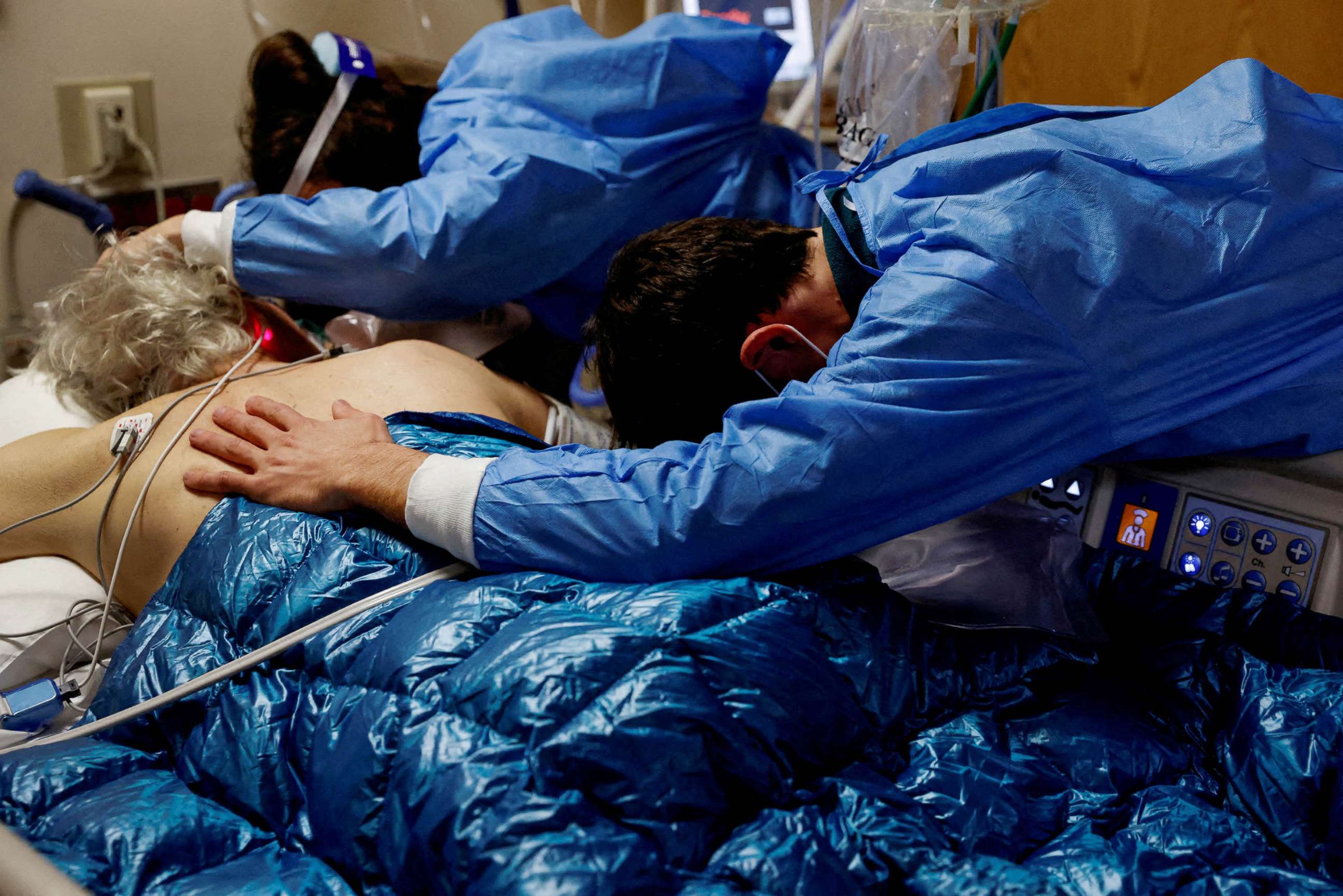COVID hospitalizations at least 3 times higher among seniors than other age groups: CDC
Only about one-third of elderly adults have received an updated booster shot.
COVID-19 hospitalizations among seniors are at least three times higher than any other age group, according to data from the Centers for Disease Control and Prevention.
As of Dec. 7, new hospital admissions per 100,000 for those aged 70 and older sits at 6.93 per 100,000.
The next highest rate is among those between ages 60 and 69, which sits at 2.21 per 100,000, as of Dec. 6.
When looking at rates for younger age groups, the disparity is even greater. Among those aged 17 and younger, the new hospital admissions rate is 0.28 per 100,000.
It comes on the heels of data from the CDC showing that more than 90% of COVID-19 deaths, as of Dec 7, have occurred among those aged 50 or older.

"It sort of really highlights both that this virus is still around and is causing significant illness in our communities, impacting our most vulnerable population, which is the elderly population," said Dr. John Brownstein, an epidemiologist and chief innovation officer at Boston Children's Hospital and an ABC News contributor.
Brownstein said the rising hospitalization rates showcases the lack of booster shots received by the older population.
Although the majority of seniors aged 65 and older are fully vaccinated at 93.8%, only a little more than one-third have received an updated bivalent booster dose, according to CDC data.
"The reason we haven't seen an uptake in this population is probably multifactorial," Brownstein said. "There's likely misinformation or misunderstanding about the benefits of boosting."
He continued, "You know they may have gotten the original vaccine and then the virus, so they feel like they're [protected]. Additionally, we don't have the same level of messaging we once did about vaccines."
Brownstein said there is already evidence that COVID hospitalizations are trending upwards, which could continue with the upcoming holiday season as more people gather indoors -- potentially unmasked -- and travel.
Additionally, hospitals are feeling the crush of an early respiratory season with both flu and RSV cases filling up emergency rooms and hospital beds -- and also mostly affecting seniors.
Data from the CDC shows that as of the week ending Dec. 3, the latest date for which data is available, adults aged 65 and older are being hospitalized for RSV at a weekly rate of 3.5 per 100,000.
What's more, over the same period, for flu, senior citizens are being hospitalized at a weekly rate of 18 per 100,000, also higher than any other age group, according to the CDC.
Brownstein stressed the importance of making sure seniors are boosted, especially ahead of the holiday season, but also that they received their primary series if they haven't already.
According to the CDC, as of Sept. 25 -- the latest date for which data is available -- unvaccinated seniors aged 80 and older are dying at the highest rate of 14.16 per 100,000 followed by unvaccinated seniors aged 65 to 79 at 5.68 per 100,000.

"Vaccination really remains the cornerstone of the response," Brownstein said. "Trying to improve education and access, combatting misinformation and getting information out ahead of the holiday season."
He added that although it's important for this group to get the shots themselves, the rest of the community also needs to do the same, particularly because children can unknowingly pass the virus to their parents or grandparents.
"Ultimately we need to do what we can to protest our most vulnerable, the ones who may not be able to mount a good immune response to vaccines," Brownstein said. "Of course, we also need to be appropriately cautious, making sure we've acting responsibly."




